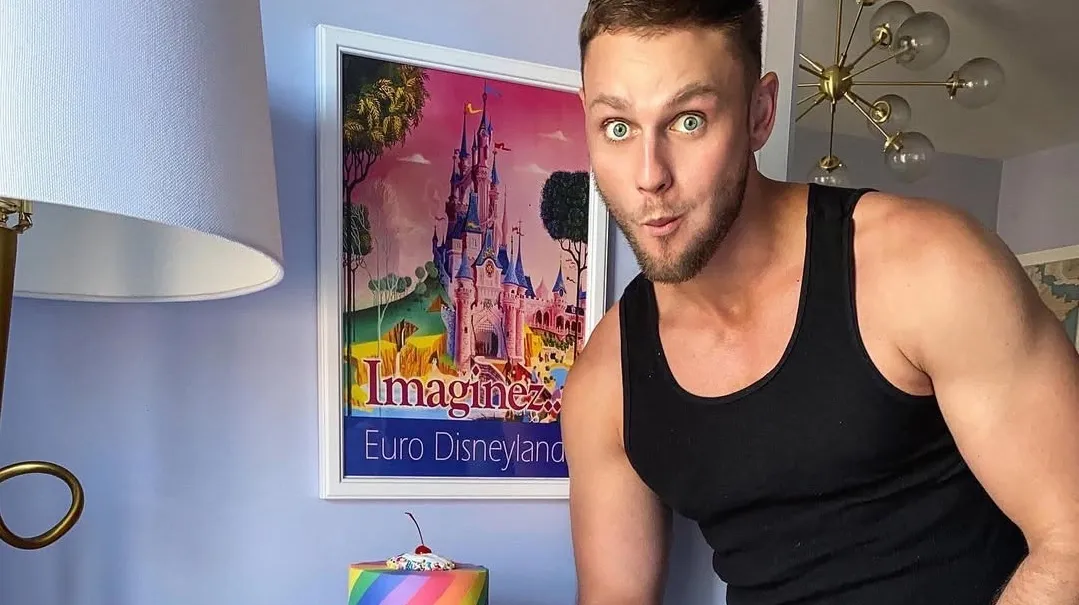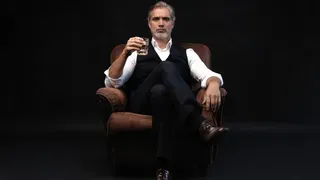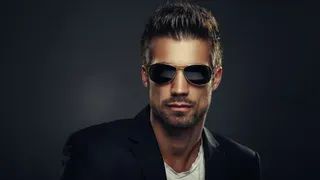July 13, 2013
Tuning Out the Tour
Kilian Melloy READ TIME: 6 MIN.
My husband has been full of news about The Tour de France for the last couple of weeks, but I just can't get into it. Mark Cavendish... the Australian team... women petitioning to be allowed to join in... the drama, the humor, the surprise, the suspense.
No, not for me.
Yes, it's Lance.
CNN's July 12 story sums it up nicely: "While the PR machine goes into overdrive and the wheels of change are supposedly set in motion, cycling's attempt to lift the specter of Lance Armstrong still remains."
"A man who 'won' the Tour de France on seven occasions brought the sport to its knees last January after finally admitting he doped following years of denying the allegations."
Actually, even before Lance's plunge from glory, I was experiencing a post-Armstrong anomie. After Lance's seven consecutive wins, it seemed that whatever might come next would only be a letdown. The Tour's challenges and champions were as exciting and colorful as ever, but something was gone.
For a while, it seemed an American tradition to cheer for Lance - and to cheer when he took the title. As the years went by, the charge of seeing him pull ahead (sometimes coming up from behind in dramatic fashion) grew ever greater: Could he possibly manage the feat a fifth time? A sixth? A seventh?
In his 2001 book "It's Not About the Bike: My Journey Back to Life," co-written with Sally Jenkins, Armstrong talked, in what seemed like perfectly candid terms, about his early years, his triumphs, his flaws, his relationships, his battle with cancer, and his efforts to rebuild his body virtually from scratch, focusing on training techniques that would reshape him physically into a better bike racer. There was a note of genuine outrage in the passage in which he describes how those who accused him of doping seemed to think that his cancer meds had constituted a chemical means of cheating.
Now, of course, that book (and its 2003 follow-up, "Every Second Counts") requires a degree of parsing. We cannot simply take Lance for his word in these volumes, where he denies taking performance-enhancing substances. But one thing Lance said in the first book jumped back into memory when he confessed to, yes, having doped: "I'm not a hero."
Even if he meant those words (and there's no reason to think he was indulging in false modesty), the plain fact of the matter was that - yes - he was very much a hero for lots of people, and not all of them sports fans. His story seemed so quintessentially American: He came from ordinary origins, and when, at age 16, he found his way to an avenue that held the prospect of extraordinary accomplishment, he threw himself into it.
In another passage, he wrote about how he'd seen athletes quiver on the brink of going all-out, only to fade back; he couldn't understand why. Those seem like the thoughts of a true champion. Now, though, those words, like everything else in those volumes, take on multiple meanings.
Taken apart from his athletic career, Lance Armstrong is still an exceptional man. But the fact is, and remains, this: The thing for which he's best known and was once most widely admired, was based on a lie. That sticks in the craw. For those who believed in him all during the years accusations were mounting, it hurts in the heart.
It's hard to see your hero disgraced. You want to defend him... until you understand that the bad news really is true, and then you want to see him flogged. There's nothing quite like the disappointment of finding out that someone you looked to as an inspiration is really just another human being, prone to doing the dumb (and sometimes mendacious) things that human beings do.
I took Lance Armstrong's books off my shelf when he 'fessed up. I started toward the recycle bin with them, because what good were they now? Why shouldn't they be pulped? But I stopped short. There was a lesson to be learned, here, and not just about the foolishness of looking to someone else to embody all the better things that you might cultivate in yourself. There seemed to be a chance to learn something about seeing that a hero really is human after all, and learning not to condemn him for it. After all, who let me down here? Lance Armstrong, for doping and lying about it? Or me, for looking to Lance to be the hero I might have tried harder to be for my own self?
Imagine it. You're Lance Armstrong, a kid who discovers that he's got a real gift as an athlete. Doors start to open up, but with opportunity comes a price. Athletes dope; it's what they do. They aren't supposed to, but let's be real: we kid ourselves when we choose to think that the sporting world isn't driven by the same ambitions and forms of greed and pride as anything else in our grimy human existence. When Lance told Oprah, and then French newspaper Le Monde (which was an early voice in the "Lance is Doping" chorus) that winning the Tour would not even be a possibility without some sort of doping, I believed him.
Lance used substances that the tests of the time weren't looking for. That's how he got away with it. He was a cheat, but a clever cheat. What will we find out tomorrow about today's champions? Who's to say that those who testified against him, criticized him, and condemned him aren't just as culpable, and their turn in the media gauntlet won't come?
I can't help thinking there's more to that story. A culture that rewards elite athletes handsomely, but at the price of their physical and ethical integrity; a system of athletics, interlinked with and underpinned by commercialism in which the driving force is money, rather than achievement. In that environment, how could it be otherwise? How could it not all come down to PR, deception, and sophisticated chemistry?
Lance Armstrong was the best in the world, or so we thought. I only wonder whether it's even possible to be the best, or have a shot at being the best, without making the Faustian bargains that he did. Among all the other trade-offs a world athlete must make, ensconced in regimens of training and media appearances and endorsement deals, could Armstrong or anybody else be expected to keep his head - and his scruples?
We make our own gods, and we make our own monsters. Sometimes I wonder if the difference is only matter of illusion, or perspective, or ignorance.
From the heights, Lance has now descended into the depths; disrepute, where once he had glory; legal and financial troubles, where once he had wealth and resources most of us will never taste; notoriety, where once he had fame. If your heart doesn't break a little for him, then you haven't contemplated what it must be like to walk in his shoes these days.
But here's what I wonder. Yes, Lance's world must be crumbling to dust: The feds, who paid him a sum total of $40 million, are now seeking to punish him to the tune of three times that amount. His attempts to participate in other athletic events have been rebuffed. He's had to step away from the charity that he founded. The man who told us straight up that he was no hero is now reviled. The Lance Armstrong who once soared in triumph now trudges through a shit storm.
Once he comes out the other side, however, will Lance find something to have made that march through opprobrium worth the while? Will the kid who was sucked into a culture that worships celebrity and endorses winners have grown into a man who appreciates as never before the lonely, grueling effort just to keep on going? That was always Lance's most valuable natural gift: The ability to make, as he once put it, best friends out of misery and pain. If those mentors have anything left for him now, he's going to need it.
And then, too, I wonder about his own conscience. If he told us he was no hero, was this admission borne of a feeling that his public and private personae did not match up? Was Lance telling us, in effect, of his regret that he wasn't who we thought he was? If he was no hero, despite the world's adulation, was it because he was no hero to himself?
Who's to say that Lance Armstrong won't truly be a hero some day -- to himself and to his family if to no one else, and in some way that doesn't need a media spotlight or a trophy to be validated? Who's to say that's not the very definition of redemption?
Kilian Melloy serves as EDGE Media Network's Associate Arts Editor and Staff Contributor. His professional memberships include the National Lesbian & Gay Journalists Association, the Boston Online Film Critics Association, The Gay and Lesbian Entertainment Critics Association, and the Boston Theater Critics Association's Elliot Norton Awards Committee.





